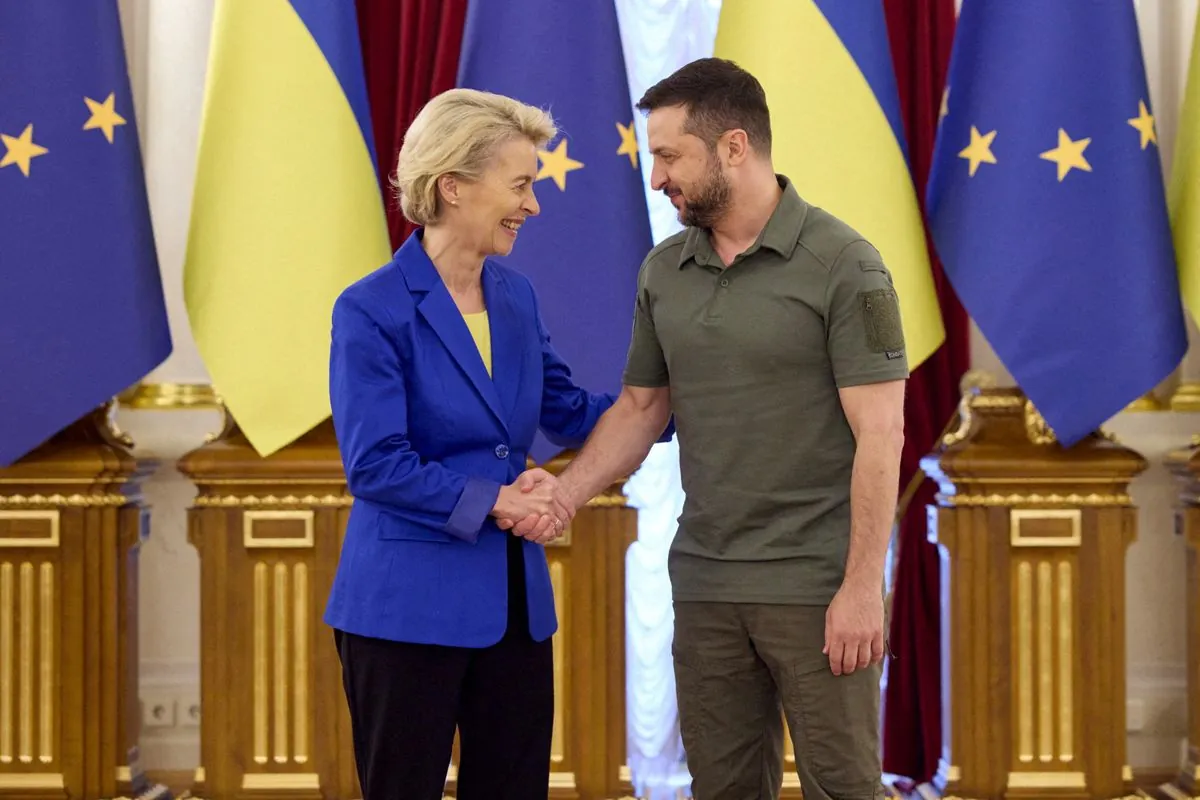The European Union has announced a significant financial commitment to Ukraine, pledging a loan of up to €35 billion ($39 billion) to support the country's economy amidst its ongoing conflict with Russia. This development comes as part of a broader initiative by the G7 nations to utilize frozen Russian assets for Ukraine's benefit.
Ursula von der Leyen, President of the European Commission, revealed this substantial aid package during her visit to Kyiv on September 20, 2024. The announcement underscores the EU's continued support for Ukraine, which has been grappling with the devastating effects of war for over two and a half years.
"Relentless Russian attacks means Ukraine needs continued EU support"
The conflict, which began with Russia's invasion on February 24, 2022, has inflicted severe damage on Ukraine's infrastructure. Notably, approximately 9 gigawatts of Ukraine's energy capacity has been compromised due to Russian attacks, highlighting the urgent need for financial assistance.
This loan is part of a coordinated effort by the G7 countries, which froze around $300 billion worth of Russian financial assets shortly after the invasion began. The group has been working on mechanisms to use these funds to aid Ukraine, with discussions spanning several months to determine the most effective approach.
In May 2024, the EU reached an agreement among its member states regarding the allocation of proceeds from these frozen assets. Under this arrangement, 90% of the funds will be directed towards military aid for Ukraine through an EU-managed fund, while the remaining 10% will support other aspects of Ukraine's needs.
The first tranche of this financial aid is expected to reach Ukraine in July 2024, according to EU diplomats. This timely support is crucial for Ukraine, which faces enormous financial challenges in rebuilding its war-torn infrastructure and maintaining its economy.
It's worth noting that Ukraine's pre-war GDP in 2021 was approximately $200 billion, emphasizing the scale of economic impact the conflict has had. The country's energy sector, which heavily relied on nuclear power before the war, has been particularly affected, necessitating significant investment for recovery and modernization.
The EU's commitment to Ukraine extends beyond financial aid. In February 2022, Ukraine applied for EU membership, marking a significant step in its aspirations for closer European integration. This application came at a critical juncture, coinciding with the start of the Russian invasion.
The concept of using economic sanctions as a tool for international pressure is not new, dating back to ancient Greece. However, the scale and coordination of the current sanctions against Russia represent an unprecedented use of this strategy in modern times.
As the conflict continues, the international community, led by the EU and G7 nations, remains committed to supporting Ukraine's sovereignty and economic stability. This substantial loan package is a testament to the ongoing solidarity with Ukraine in the face of continued aggression.
